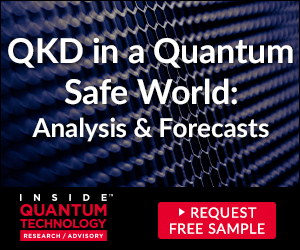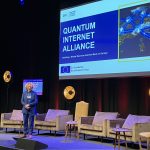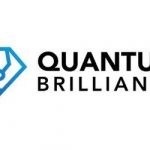Quantum News Briefs March 15: Technical University of Denmark’s Quantum Technology Centre has appointed international leader; Oxford Quantum Circuits to Install a Quantum Computer at Equinix IBX Data Center; Revolutionary heterostructure material may solve key quantum computing issue for IBM & Google + MORE

Quantum News Briefs March 15:
Technical University of Denmark’s Quantum Technology Centre has appointed international leader
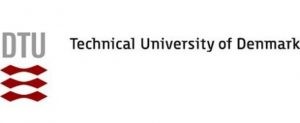 The Technical University of Denmark’s Quantum Technology Centre has announced the appointment of Lydia Baril, an international leader according to March 10 news from IndiaEducation summarized below by Quantum News Briefs.
The Technical University of Denmark’s Quantum Technology Centre has announced the appointment of Lydia Baril, an international leader according to March 10 news from IndiaEducation summarized below by Quantum News Briefs.
Lydia Baril took up her role/will take up her role with DTU on 1 March 2023. Baril has extensive knowledge across the entire quantum technology field. She began her career at IBM in Silicon Valley, has been involved in the founding of several companies in areas including software development for online search in her native France, and most recently worked on the manufacture of quantum computer qubits at Oxford Quantum Circuits in the UK and has held a management role at Microsoft’s Quantum Lab in the Netherlands.
The Copenhagen region is a world leader in quantum technology development. And DTU plays a significant role, especially in terms of developing quantum technology for use in both the public and private sectors.
“We’re delighted to appoint Lydia Baril to head our new centre. I’m certain that she is the right person to make our research even more accessible to society as we see more and more businesses and public authorities announcing that they’re ‘quantum-ready’. She’s intimately familiar with the quantum technology field, in addition to her knowledge of the scientific world, her perspective on innovation thanks to her involvement in start-ups, and her necessary insight into the business world from her previous roles,” says Rasmus Larsen, DTU Executive Vice President and Provost.
“I look forward to working together with DTU’s talented researchers and the many users and stakeholders in the quantum field. Quantum technology is an area undergoing strong growth and I’m looking forward to boosting the many fantastic quantum-related activities taking place at DTU, ranging from research and teaching to exploiting commercial opportunities that will help strengthen the Danish quantum ecosystem,” said Lydia Baril.
Oxford Quantum Circuits to Install a Quantum Computer at Equinix IBX Data Center

Oxford Quantum Circuits (OQC), a leading global Quantum Computing as a Service (QCaaS) company, and Equinix, Inc.announced on March 14 that OQC aims to make one of the most powerful quantum computers available commercially to businesses worldwide via Equinix’s TY11 Tokyo International Business Exchange (IBX) data center.
OQC is installing its quantum hardware in TY11 and plans to leverage Equinix’s on-demand interconnection solution, Equinix Fabric, to make its Quantum Computing as a Service available to businesses and organizations around the world on Equinix’s global platform in late 2023.
Equinix (Nasdaq: EQIX) is the world’s digital infrastructure company. Digital leaders harness Equinix’s trusted platform to bring together and interconnect foundational infrastructure at software speed. Equinix enables organizations to access all the right places, partners and possibilities to scale with agility, speed the launch of digital services, deliver world-class experiences and multiply their value, while supporting their sustainability goals.
Once connected to Equinix Fabric, businesses will benefit from the ease of access to quantum computing as if it is on-premises, meaning that they can trial and experiment with the ground-breaking technology by directly connecting to QCaaS within their own digital infrastructure with greater security and ease.
It is expected there will be growing demand from organizations, with the technology set to support a wide range of sectors, from drug discovery and development to risk management, banking and advanced manufacturing. Click here to read complete announcement on the Equinix site.
Revolutionary heterostructure material may solve key quantum computing issue for IBM & Google
 An international team of researchers has discovered that a novel form of heterostructure made up of layered two-dimensional (2D) materials could help overcome the major obstacles to the widespread use of quantum computing. The study, which was published in the journal Nature Materials, was conducted by a team from the Penn State Center for Nanoscale Science (CNS). Quantum News Briefs summarizes article from SciTechDaily.
An international team of researchers has discovered that a novel form of heterostructure made up of layered two-dimensional (2D) materials could help overcome the major obstacles to the widespread use of quantum computing. The study, which was published in the journal Nature Materials, was conducted by a team from the Penn State Center for Nanoscale Science (CNS). Quantum News Briefs summarizes article from SciTechDaily.
“IBM, Google, and others are trying to make and scale up quantum computers based upon superconducting qubits,” said Jun Zhu, Penn State professor of physics and corresponding author of the study. “How to minimize the negative effect of a classical environment, which causes error in the operation of a quantum computer, is a key problem in quantum computing.”
A solution for this problem may be found in an exotic version of a qubit known as a topological qubit.
“Qubits based on topological superconductors are expected to be protected by the topological aspect of the superconductivity and therefore more robust against the destructive effects of the environment,” Zhu said.
A topological qubit relates to topology in mathematics, where a structure is undergoing physical changes such as being bent or stretched, and still holds the properties of its original form. It is a theoretical type of qubit and has not been realized yet, but the basic idea is that the topological properties of certain materials can protect the quantum state from being disturbed by the classical environment.
There is currently a lot of focus on topological quantum computing, according to Cequn Li, a graduate student in physics and the first author of the study.
The study’s researchers have taken a step in this direction by developing a type of layered material called a heterostructure. The heterostructure in the study consists of a layer of a topological insulator material, bismuth antimony telluride or (Bi,Sb)2Te3, and a superconducting material layer, gallium.
“We developed a special measurement technique to probe the proximity-induced superconductivity at the surface of the (Bi,Sb)2Te3 film,” Zhu said. “The proximity-induced superconductivity is a key mechanism to realize a topological superconductor. Our work showed that it indeed occurs at the surface of the (Bi,Sb)2Te3 film. This is a first. Click here to read the SciTech article in-entirety.
New quantum enhanced cryptographic chip released by ID Quantique, KCS and SK Telecom
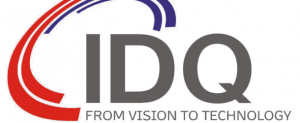 SK Telecom and ID Quantique presented a new quantum-enhanced cryptographic chip co-developed with Korea Computer & Systems (KCS), a maker of IoT security cryptographic chips to secure IoT devices communication at last week’s Mobile World Congress in Barcelona.
SK Telecom and ID Quantique presented a new quantum-enhanced cryptographic chip co-developed with Korea Computer & Systems (KCS), a maker of IoT security cryptographic chips to secure IoT devices communication at last week’s Mobile World Congress in Barcelona.
This quantum-enhanced cryptographic chip is an ultra-compact and low-power chip that provides strong security functions to various IoT-based products and devices. Adding ID Quantique’s ultra-compact QRNG chip (IDQ250C3) to KCS’ crypto chip ensures trusted authentication and encryption of sensitive information and make our connected world more secure. The combination of these two chips into one chipset is more cost effective and a compact solution, allowing board size to be reduced by 20% thanks to a higher integration level, compared to the case of mounting two existing and separate chips on a board. In addition, the new chip is in the process of acquiring the highest level of security from the Korean National Intelligence Service’s KCMVP certification body. It targets the fast-growing security market with applications from national defense sectors to industrial and public sectors.
KCS, SK Telecom and IDQ have been collaborating for several years, bringing to the market a whole range of crypto chip-based solutions aiming at ensuring and enhancing IT security without compromising on performance and speed. Click here to read the February 28 Newswire announcement in-entirety.
Sandra K. Helsel, Ph.D. has been researching and reporting on frontier technologies since 1990. She has her Ph.D. from the University of Arizona.



















